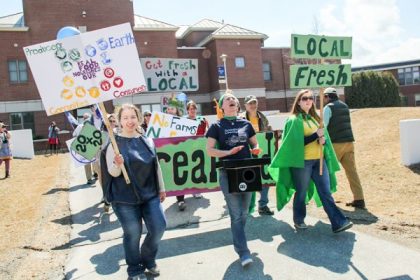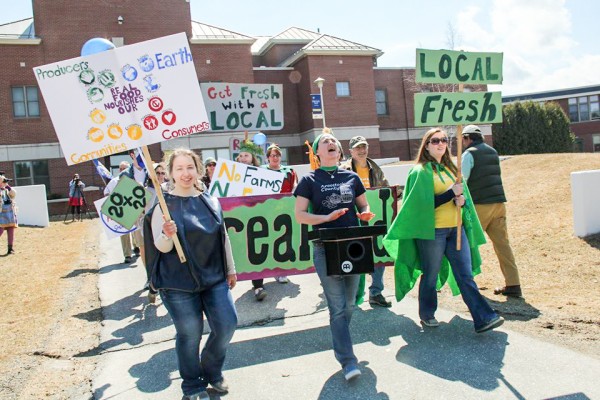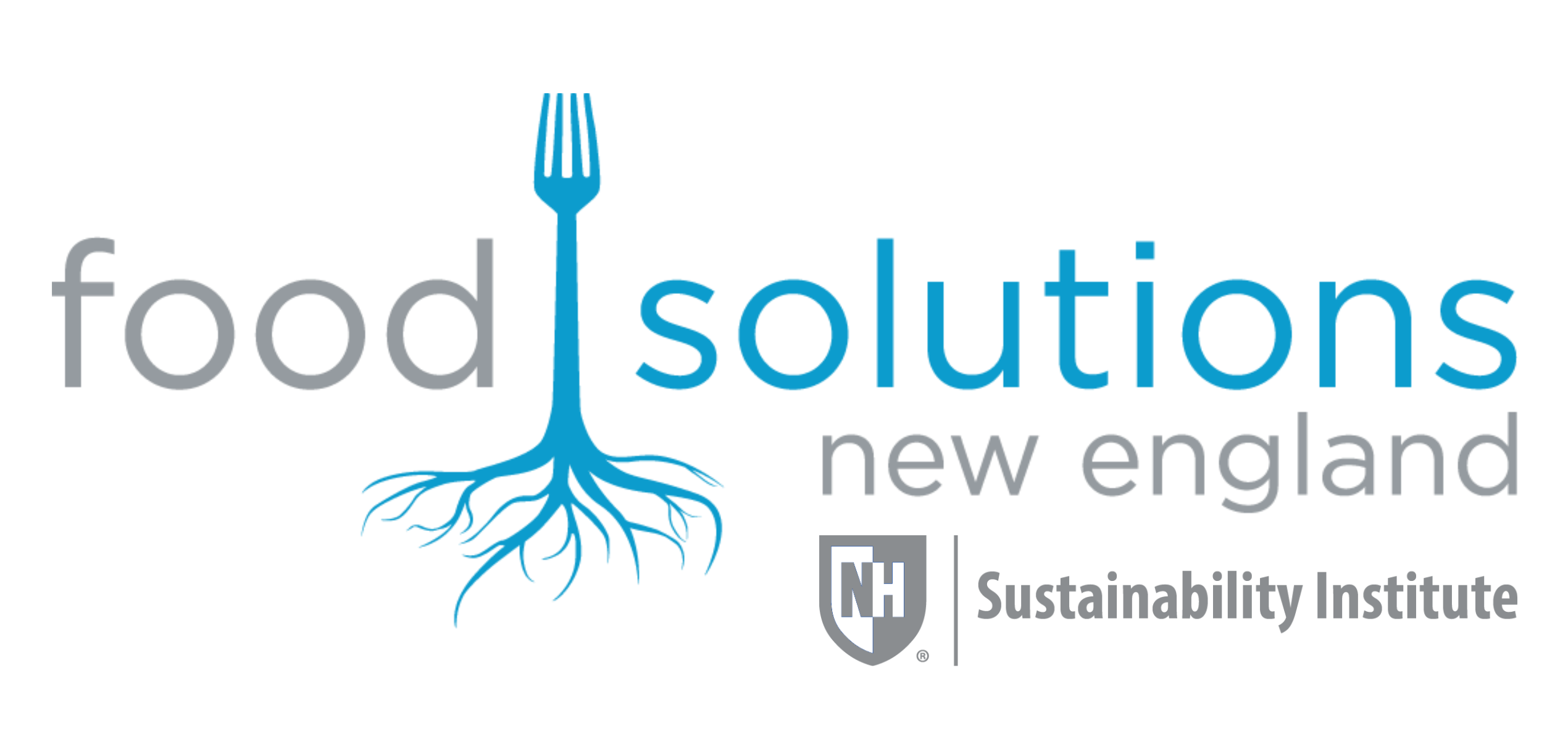
This post was originally published on Farm to Institution New England’s blog.
Farmers and food advocates still pushing for sustainability and fair labor standards in July 2016 contract
 On August 31st, the Office of Strategic Procurement for the University of Maine System released their request for proposal (RFP) for food service at six of the seven University of Maine Campuses.
On August 31st, the Office of Strategic Procurement for the University of Maine System released their request for proposal (RFP) for food service at six of the seven University of Maine Campuses.
“Maine students, farmers, and community leaders have spoken and the UMaine System has responded with an RFP that includes a 20% commitment to local foods,” said Riley Neugebauer of Farm to Institution New England, and a member of the Maine Food for the UMaine System Coalition. “We’re glad to see this clear statement from the public University System, which will greatly benefit Maine’s producers and processors. The UMaine System has come a long way from their last food service contracting process ten years ago, and we look forward to working with them in the next few months, and throughout the next contract period to implement these goals and more.”
The recent release of the RFP reflects months of effort on behalf of many stakeholders in Maine and New England who were advocating for language and metrics supporting local, sustainable, humanely-raised, and fairly produced foods. The University System’s commitment to local food is well-articulated in the introduction, and again in Section 7.0 and Appendix B-4 of the RFP. The coalition notes that the RFP would be stronger if it more clearly defined the method that vendors and the University System will use to track and benchmark their progress towards not only local foods, but also sustainably produced, humanely-raised, and fairly produced foods.
“It is certainly exciting that the Maine Food for the UMaine System Coalition and our recommendations have made a notable impact on both the RFP process and the product,” said Audrey Cross, a senior at UMaine. “In my two years of working on Real Food Challenge, when I speak with those in the Procurement Office and in UMaine Auxiliary Services, I continue to be impressed at the dedication of individuals to sustainability and serving the state. However, there is still much work to be done. The UMaine System needs to take additional steps to provide clear tools for transparently tracking purchases, institutionalizing student and stakeholder engagement with seats at the table, and developing clearer commitments to issues such as fair labor, humane treatment of animals, and sustainable production methods–in Maine and beyond. Though 20% ‘Real Food’ is not in the RFP, it is still a goal that our campuses will work towards, and it takes students to make sure these commitments happen.”
In July, the Maine Food for the UMaine System Coalition released a comprehensive set of recommendations backed by more than 150 Maine farmers and fishermen, 1,500 students and community members, and 50 additional influential individuals and organizations, including Maine Farmland Trust and MOFGA. The Coalition’s top recommendations focus on community engagement and collaboration:
- A commitment to purchase a minimum of 20% Maine Food and 20% ‘Real Food’ (which preferences sustainably grown, humanely-raised and fairly produced foods in addition to local) by 2020, as well as a preference for New England grown food
- Creation of a University System-wide Food Working Group, comprised of students, staff, admin, faculty, and important community stakeholders to monitor and hold the new contractor accountable to their commitments as well as help with supply chain development efforts
- Use of the Real Food Calculator to track Real Food and Maine Food purchasing, which includes the hiring of students on each campus to run these assessments
- A commitment to collaborate with community partners to identify strategic production needs, including holding an annual growers meeting for potential local suppliers and offering transparent pricing and volume information
Bobbi-Jo Oatway, a student at UMaine Presque Isle comments, “Laying out a vision for local foods in the UMaine System is a positive first step. But to make it really happen, the final contract is going to need to have teeth. That is, explicit language on issues of transparency, tracking, and accountability–not to mention guarantees that the men and women who serve our food daily won’t be laid off when the contract changes hands, for example. And that’s why our Coalition and the public at large will continue to be engaged in this process.”
For more information, including a list of endorsers and contact information for campaign organizers, click here.
Kaitlin Haskins is the Communications Coordinator for Farm to Institution New England.
Photos by Olivia Hollingsworth




